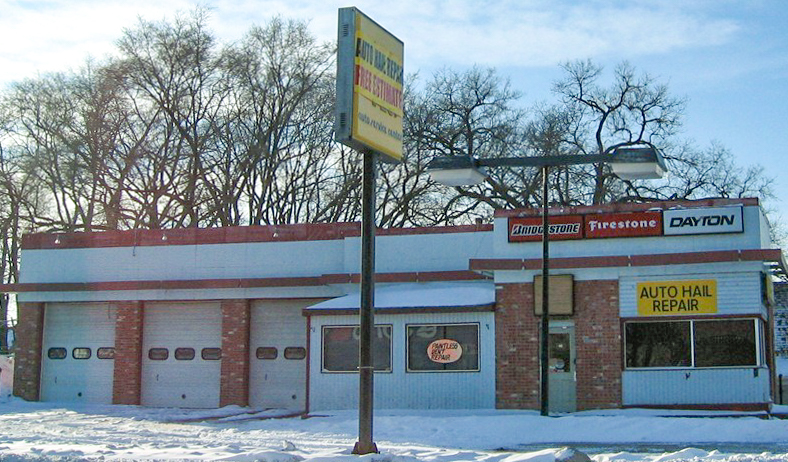Back to Northfield's Future
- Mar 24, 2020
- 4 min read
For locals and visitors alike, the city of Northfield, Minnesota is synonymous with history, character, quirkiness, and charm.
By Greg Siems, Northfield Main Street Director

These attributes, however, do not necessarily equate to a backward-looking attitude or developmental inertia as one might expect, especially in a community whose most prominent claim to fame is an averted bank robbery in 1876.
Quite the opposite, in fact. Over the past several years Northfield has enjoyed a renaissance of investment that capitalizes on the town’s history without being restricted by it. Businesses are creatively reimagining existing spaces to compete in a world increasingly dominated by online shopping and free shipping. Both new and existing enterprises are embracing the reality that comfortable places, unique experiences, and intentional community building are more important to a successful retail operation than ever before.
Several recent projects are emblematic of this trend and simply could not have been possible without the innovative entrepreneurs, productive collaborations, and effective support from public sources that have created a thriving local economic ecosystem here in Northfield.
Reunion – Eat, Drink, Gather is perhaps the poster child of this movement, having opened in May 2019 after more than a year of construction at the corner of Division and 5th. Over 12,000 square feet of space across three historic buildings (originally built in 1878, 1901, and 1904) were remodeled and refashioned into an original restaurant concept that will surely be an anchor destination in downtown Northfield for years to come.
Reunion is thought of as the poster child of the business trend emerging in downtown Northfield - originality and community focused. Exterior of Reunion before, left, and after, right.
Armory Square Event Center and Imminent Brewing have been around slightly longer but are still relatively new kids on the block (literally – they are just down the block from Reunion). These two businesses transformed the vacant 1915-built National Guard Armory and its attached garage into modern, hip spaces that play host to musicians, artists, food trucks and pop-up community meals throughout the year (not to mention the great beer).

Speaking of beer, Tanzenwald Brewing arose across the river right around the same time, in the spring of 2017. What began in 1887 as a pump house for the municipal water system, then a steam engine servicing station, then a working creamery, and
Left: Tanzewald exterior, before. Right: Tanzewald exterior, after.
finally a derelict eyesore along Highway 3 has become an essential gathering space for those who love food and drink that is globally inspired but locally sourced.
Eco Gardens similarly took what used to be a rundown gas station and service center near the heart of downtown and created an iconic garden store specializing in plants grown organically. The relative elder statesmen of the bunch, they’ve been offering unique varieties of annuals, perennials, heirlooms, natives, and more since 2010. They also received matching funds from the City’s streetscape improvement budget to construct an attractive retaining wall and other landscaping on the property, which greatly added to the area’s aesthetic.
Last, but certainly not least, Little Joy Coffee opened in the spring of 2019, renovating what had most recently been a clothing boutique in the historic 133 year-old John Sitze building into a warm, inviting space with an industrial-chic vibe that could easily fit into any thriving urban neighborhood across the country. As the retail outgrowth of Groundwire Coffee Roasters, Little Joy benefited from an outpouring of community investment through online crowdfunding platforms, an EDA micro-grant, and agreements with other downtown businesses such as Just Food Co-Op and Brick
“NORTHFIELD HAS THEIR SHARE OF ISSUES, INCLUDING RETROFITTING OUR AGING BUILDING STOCK TO BE SAFER AND MORE ACCESSIBLE FOR PEOPLE OF ALL AGES AND ABILITIES.”
Oven Bakery to sell Groundwire’s thoughtfully sourced and locally roasted beans.
These businesses are indeed the bright new stars of downtown Northfield, and they fit perfectly alongside Division Street stalwarts like the Rare Pair, Goodbye Blue Monday, and Hogan Brothers Acoustic Café. But I also don’t want to paint an overly rosy picture of downtown, either. We still deal with our share of issues, not the least of which includes retrofitting our aging building stock to be safer and more accessible for people of all ages and abilities. What the above examples prove, though, is that with thoughtful planning, creative investment, and broad-based community support we can continue to thrive and meet the demands of a changing world.
Top: Eco Gardens, prior to renovation. Bottom: Eco Gardens exterior, after.
It comes as no surprise to those knowledgeable about historic preservation, urban placemaking, and local economic development that proactively investing in and marketing a community’s existing assets can generate significant dividends in the long run. Success requires ongoing attention to market and demographic conditions, persistent imagination in adapting and reusing spaces, and constant commitment to the principle that the best solutions to local problems are derived locally. All of this is rooted in a community’s history but ultimately depends on the business community’s ability to evolve and the general population’s willingness to buy into changes that make sense in relation to global trends and local context.
This is simply stated but difficult, of course, to achieve. Progress is often slow and painstaking, but it is frequently punctuated by bursts of new opportunities that can generate sustained momentum with the right mix of private and public investment. I believe we are living through one of those moments, despite the volatile political and economic times we find ourselves in.
Northfield was once a pioneer of the historic preservation movement, having established its downtown historic district in 1978 and earning a spot in the National Register of Historic Places in 1979. Upon this foundation we are now seeking to do more than just preserve our history; we are working to create it.


















